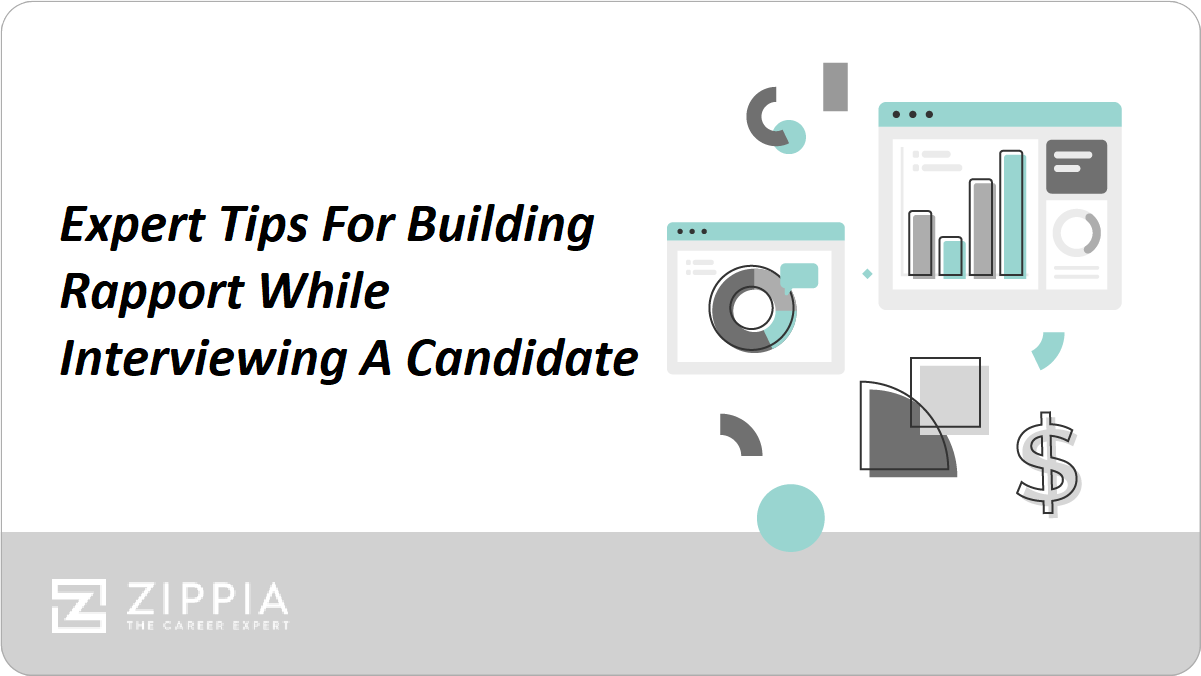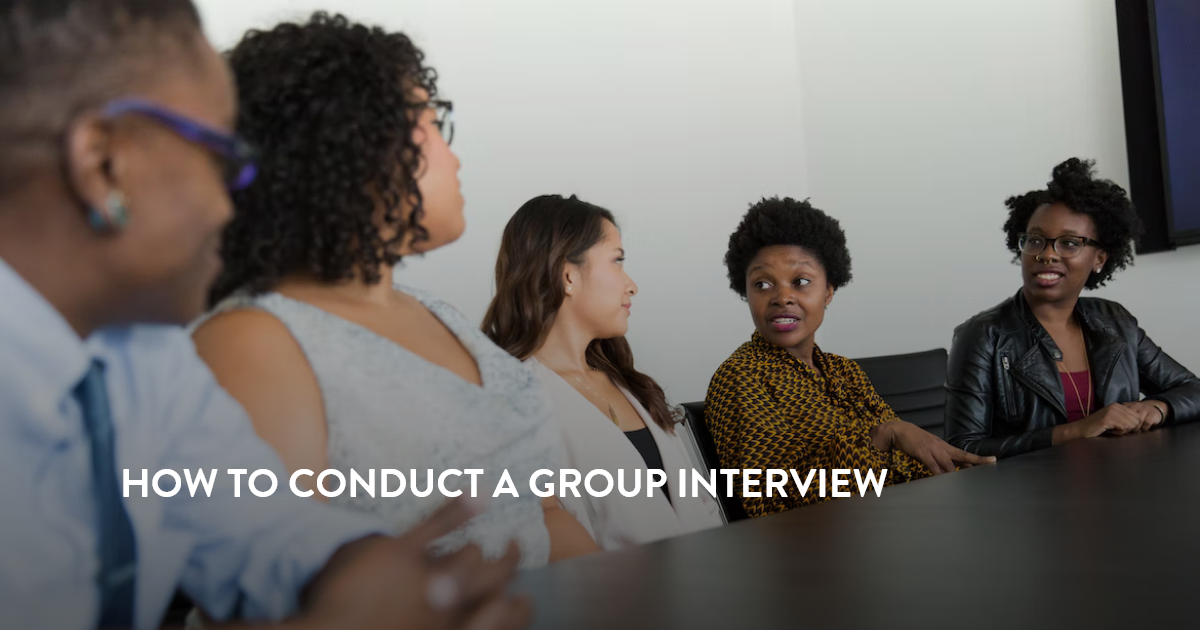A job interview is undoubtedly a tremendously important event for a candidate. It is an opportunity to be hired by a great company and develop new professional skills, which are critical for advancing their career. That’s why a candidate always tries hard to build rapport with the interviewer. This strategy allows the candidate to demonstrate professional abilities and make a strong first impression.
On the other hand, interviewers typically need to demonstrate the culture of the company and then see how the candidate responds. To accomplish that, they have to build rapport with the candidate and allow them to feel welcomed while promoting the desire to commit to organizational policies.
We have collected some helpful tips from HR experts to help you to create a comfortable atmosphere for job seekers during the interview process.
Key Takeaways:
-
Make sure you are welcoming and polite when a candidate walks into the interview room.
-
Review their resume, cover letter, and portfolio before the interview to help you be prepared and help you establish interview questions.
-
Don’t ask any trick questions and try to ask behavioral based questions to begin with.

Tips For Building Rapport While Interviewing A Candidate
-
Be welcoming and polite. It is an obvious requirement that must be adhered to by interviewers in all companies regardless of size and industry. When a candidate walks into an interview room, make sure you greet them by shaking their hand and introducing yourself. In addition to your name, you should also give the candidate your current position in the company.
At this point, some small talk is also appropriate so you can fill the silence during the time when the candidate is getting settled. Also, feel free to offer the candidate a glass of water or a cup of coffee or tea if available.
Finally, don’t forget to thank them for their time. Most candidates will have taken time out from their current job to meet with you, so a little appreciation would be nice.
-
Do your Homework. Before any interview, you must review the information about all candidates, including their previous job, interests, accomplishments, and so on. Also, if a portfolio with their best works is available, have a look at that too. All information that was sent to an interviewer needs to be carefully analyzed to make you better prepared for the actual interview and to identify qualified candidates.
Perhaps, you will find some information that will help you to get to know the candidate better as well as explore his or her past experience. For example, you can then probe as to why the candidate left a previous job after working there for just three months. The answers to these questions will provide an insight into the personality of the interviewee and help to select the best one.
-
Avoid asking trick questions. According to experienced recruiters, you shouldn’t go for complex questions right away. The reason is simple: rapport will be impossible to build if the interviewer starts to ask complex, confusing or trick questions. If anything, they only contribute to a tense atmosphere because the candidates could become nervous. Usually, most significant information is included in their CV, so asking simple questions for clarifying this information is a good point.
Instead, it is recommended to begin the interview with some relatively simple questions and then sticking to behavioral based questions that will allow the candidate to talk about their past experience and achievements.
-
Always provide an opportunity to ask questions. The candidate will typically have questions for you as well. Compensation, flexible hours, health insurance, office location, you name it. It is completely reasonable to have these kinds of questions at their first interview with a prospective new company, so they must be answered. That’s why you should always end an interview by giving the candidate the opportunity to ask some questions as well.
Try to answer them to the best of your knowledge and be honest. If for some reason you can’t give an answer, you can always ask someone to assist you or you can call the candidate later that day once you have found the answers. Don’t try to give false or incomplete information because the success of the candidate may depend on your answer.
-
Interview in an open room. The room setting is also an important element in any interview. Experienced HR specialists say that the best distance between an interviewer and a candidate allows for comfortable eye contact, so they should not be sitting in different corners of the room. In some cases, the table that separates them is eliminated to make it less formal and more comfortable for the interviewee.
It is a common practice for experienced interviewers to arrange the room before the meeting so that it meets all individual requirements. For example, contemporary practices suggest that the table is not a mandatory requirement for such rooms to provide an open space.
There are many ways in which interviewers prepare to meet with candidates. The chief goal of the preparation is to make them relaxed and comfortable to share their true qualities and strengths. In turn, this environment can help the interviewer select the most suitable candidate.
-
Share your feelings about the company. Make sure you speak about how you feel about the company and be enthusiastic a bout it. Candidates can tell when you don’t want to be in the interview room and if you dislike your job. You are trying to sell the company to them just as they are trying to sell themselves you you.
-
Be aware of your body language. Make sure you are making eye contact with the candidate and you are engaged when they are answering questions. Try to avoid looking down at your papers the entire time. Avoid crossing your arms and legs and try to slightly learn forward to show that you are listening.
-
Take a genuine interest in them. Try to take a genuine interest in them even if you are unsure if you are going to hire them. Get to know what is important to them. Taking this time to get to know the candidate helps reaffirm their interest in the company, and it helps you figure out if they will fit in with the company culture.
-
Follow up. If you are interest in the candidate, make sure you follow up after the interview. Often times candidates feel lost and are unsure after their initial interview. Following up shows your interest and can give them some confidence back.
Keep your candidate up-to-date with your hiring process and provide a timeline for when they can hear back from you. If they don’t hear back from you, they may think you are uninterested and will move on to something else.
-
Provide feedback. Providing feedback to your candidate is a great way for them to know what they did right and what they might need to work on. Doing this can help improve their overall experience with the company and can help them feel more excited about the position. If you don’t end up hiring them, it will still give them a positive experience with the company.
- Interviewer Tips
- Structured Interviews
- How To Be A Good Interviewer
- Interview Note-taking
- Memorable Candidate Interview Moments
- Top Companies With Unique Interviewing Strategies
- How To Be A Consistent Interviewer
- Topgrading Interview Process
- How To Use Technology To Screen Interviewing Candidates
- How To Make A Great Impression With Your Candidates
- How To Be An Expert Interviewer
- How To Build Rapport During An Interview
- The Do's And Dont's Of Personality Testing
- What To Pay Attention To When Conducting Interviews





